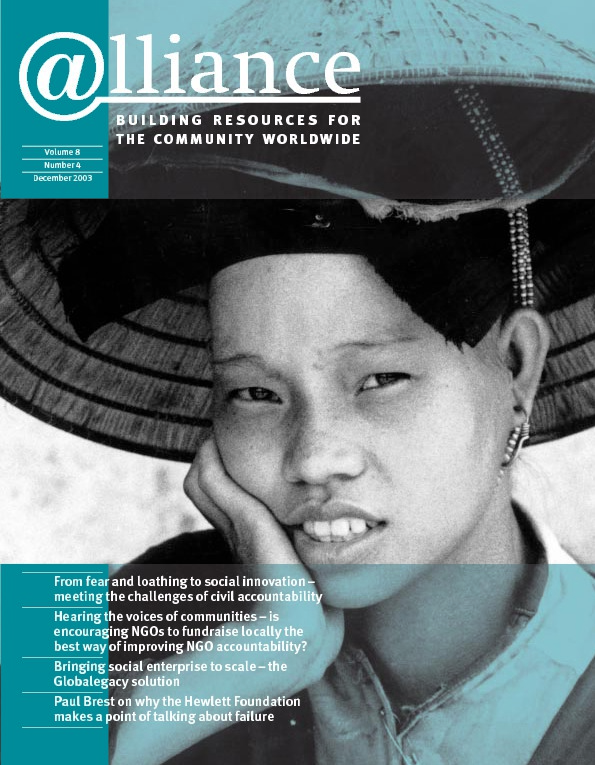This would probably be the most frequent answer to a Romanian survey asking ‘How would you define corporate social responsibility (CSR)?’ It doesn’t even have a proper Romanian translation. During a CSR conference last year it was almost funny to see businesspeople asking ‘Why exactly are we here?’
This article focuses on one aspect of CSR: involvement of businesses in community issues.
Giving by Romanian companies
Despite the lack of awareness suggested by the above, more than a third of Romanian companies (39 per cent) do make cash or in-kind donations to the non-profit sector. A study in 2002 by the Association for Community Relations (Romania) and Allavida investigated the philanthropic aspects of CSR, finding that giving is a mass phenomenon throughout the Romanian business sector, from a carpentry workshop in a Transylvanian village to multinationals in Bucharest.
All over Romania are companies with corporate volunteering, micro-grant or payroll giving programmes (the latter underdeveloped compared to those in the US or Western Europe). In some cases, companies are simply mimicking their foreign ‘parent company’, others are led by a visionary CEO. The social needs in the communities surrounding some companies are so deep that they can hardly pass by and take no action. The good old fundraising adage, ‘people give to people’, seems to hold true in the Romanian business sector.
Companies tend to make their gifts to local public institutions (such as schools, hospitals or universities), contribute to campaigns initiated by public authorities, or give to NGOs. Some companies have set up corporate foundations, which can have grant programmes that rival those of other private or public institutional donors.
Reasons for giving
The study indicates that compassion and pity are the main motivators for giving in the Romanian business sector. Only a few businesses (mainly large, state-owned companies and multinationals) have giving strategies linked to their PR and marketing strategies; image improvement and publicity were mentioned only by 2 per cent of businesses as a motivation for giving to non-profits. This might be linked to a lack of awareness regarding the benefits that businesses can realize by associating with a public cause. It may also be related to the fact that Romanian NGOs rarely have much to offer businesses in terms of improving image or visibility because they are themselves struggling to improve their own image in the eyes of the general public.
What’s in it for me?
This rather idyllic image should not fool anybody though. Average donations are extremely small – around 0.1 per cent of annual turnover. Almost half of those who make gifts donate less than US$400 per year and only 12 per cent of donating businesses have a significant budget for donations (more than $3,500 per year). Fundraising from the Romanian business sector is tough work: fundraisers can be treated like beggars or be asked to return a percentage of the donation to the company (or the employee that facilitates the donation). Fundraisers are often asked: ‘What’s in for me?’
And so we get to the issue of legislation. Under current legislation, the answer to this question is ‘nothing’, or almost nothing. The only incentive under the current sponsorship law is that companies can deduct their donation as an expense up to 5 per cent of gross profit or 0.3 per cent of annual turnover. No tax credits, no lowering of taxes, no matching from government sources!
NGO coalitions have repeatedly advocated for an increase in the percentage that can be deducted as an expense. However, in reality, businesses are far from reaching the current percentage allowed, averaging only 0.1 per cent of turnover. Several business sector representatives (among them several members of the American Chamber of Commerce) have recently expressed an interest in improving legislation regarding incentives offered to companies that invest in solving community problems.
The survey data shows that many companies give but few know why giving strategies are good for them. It remains to be seen to what extent the findings of the study will be considered and integrated by those involved in CSR programmes – businesses and NGOs – to make philanthropy in Romania work better and have a greater impact.
Catalin Gheorge is Development Director of Association for Community Relations (Romania). He can be contacted at office@arcromania.ro
For more about Association for Community Relations (Romania), see http://www.arcromania.ro



Comments (0)